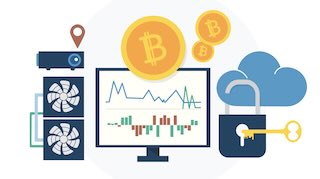Nov 25 (News On Japan) - Japan's digital currency sector has transformed from a Wild West frontier into one of the most carefully monitored markets in the world.

Following devastating exchange breaches in the mid-2010s that cost investors hundreds of millions of dollars, authorities recognized that a hands-off stance was no longer viable. What emerged was a multilayered system that weaves together government supervision, industry-led standards, and strict operational requirements for anyone handling customer funds or trading services.
This shift wasn't just about preventing the next headline-grabbing hack. The structure that regulators built aims to make the entire ecosystem more dependable for both retail traders searching for good crypto to buy and institutional players weighing their entry into digital assets. When exchanges operate under clear rules and face real consequences for cutting corners, the whole market becomes a safer place to participate.
Mandatory Registration and Asset Protection
Basic accountability forms the foundation of Japan's approach. Any platform that offers trading services must register with the Financial Services Agency and demonstrate that it meets specific governance and security benchmarks. Sound financial backing, proper cybersecurity measures, and management teams with genuine risk awareness are all non-negotiable requirements.
One of the most significant protections that came out of this registration system is the requirement to keep customer holdings separate from the exchange's own money. After the Coincheck incident significantly exposed user losses in 2018, authorities made segregation mandatory. Platforms can't dip into client funds for their own trading activities, and those assets stay protected even if the company goes bankrupt. Combined with capital reserves, this separation greatly reduces the chance that one bad decision at headquarters can drain thousands of user accounts overnight.
Exchanges must maintain detailed transaction records, implement internal controls, and report security incidents promptly. The FSA can issue improvement orders or temporarily halt operations if it spots weaknesses or suspicious patterns. That enforcement power keeps management focused on maintaining proper safeguards.
Industry Standards That Fill the Gaps
Government rules set the baseline, but Japan goes further by empowering the Japan Virtual and Crypto Assets Exchange Association to act as a frontline watchdog. This group operates with FSA approval but moves faster than traditional legislation because it's run by industry members who understand emerging threats as they develop.
Major exchanges under JVCEA membership undertake screening for new tokens, which helps reduce fraudulent listings. The association sets caps on leverage for traders and defines minimum standards for private key protection and offline asset storage. Member platforms undergo regular audits to verify compliance. This screening keeps problematic tokens off major exchanges and makes price manipulation through fake volume much harder.
This self-regulatory body can adapt its rulebook without waiting for parliamentary action, so it closes security gaps far faster than government-only systems. New risks that appear through decentralized finance protocols or cross-chain bridges get addressed through updated requirements in months rather than years.
Tracking Money Flows and Stablecoin Controls
Fraudsters depend on anonymity to move stolen funds without detection. Japan implemented the Travel Rule to address this vulnerability. Exchanges must share sender and recipient information on transfers that exceed certain amounts. Japanese platforms become far less useful for laundering proceeds from hacks or ransomware attacks under this regime.
The coordination effort among domestic exchanges to build systems that transmit and verify this data securely has strengthened relationships with international banks. Payment processors are more willing to work with Japanese crypto businesses because these platforms follow global anti-money-laundering standards, which reduces operational disruptions that could leave customers unable to access their funds.
Japan has taken a careful approach to stablecoins, with regulations that vary based on token type. Fiat-backed stablecoins face restrictions on issuance, typically limited to trust banks and similar institutions. These entities must back their tokens with proper reserves and guarantee redemption at face value. This framework prevents under-collateralized disasters that have wiped out billions elsewhere while giving traditional financial institutions a clear path to participate. The result is a market that prioritizes durability over rapid expansion, where security measures are woven into daily operations.















